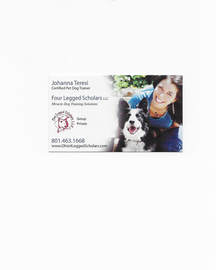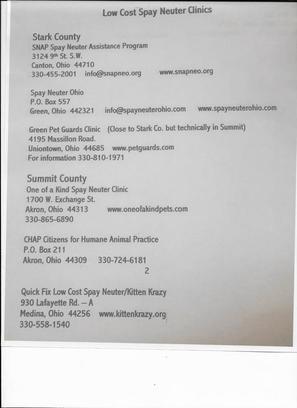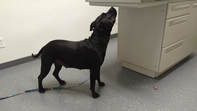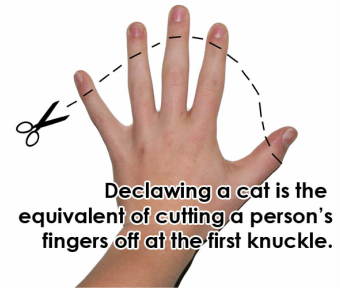
Johanna Teresi is a positive reward based Certified Dog Trainer. She is experience will all breeds and ages. She does group and private sessions. Contact her for any help or behavior.
Four Legged Scholars - 801-463-1668
www.Ohio4LeggedScholars.com
Four Legged Scholars - 801-463-1668
www.Ohio4LeggedScholars.com
Y-ME DOG TRAINING-- GREG STEWART is a Certified Dog Trainer with emphasis in Basic and Advanced behavior modification, serving Lorain, Erie, Huron, and Sandusky. He has always been a great help to rescue animals, and is always sure to put the best interest of the animal before anything else. Words from Greg: "I currently have pack of 10 dogs that live with us as family pets; living in harmony with one another is paramount. My pack members are the best teachers that I can have. They show me what balance is suppose to look like."
Facebook: https://www.facebook.com/groups/1480269292244295/
Contact at: [email protected]
Facebook: https://www.facebook.com/groups/1480269292244295/
Contact at: [email protected]

SPAY/NEUTER IS VERY IMPORTANT when it comes to pets! We need to help prevent overpopulation, and keep our own pets safe, comfortable, and healthy. There are affordable options for spay/neuter out there. Contact us for more information regarding these resources to get your pet spayed/neutered AND updated on basic care! mailto:[email protected]
Primary Pet Care offers low cost spay/neuter, vaccinations, and wellness checks. Visit their website to find the location nearest you! http://primarypetcare.com/
Friends of Animals offers spay/neuter certificates at participating vet offices: https://www.friendsofanimals.org/spay_neuter_certificate_information
One of a Kind Pet Clinic offers low cost vaccines on the first of each month, and also low cost spay/neuter options: http://www.oneofakindpets.com/site/our-clinic/
VIP Petcare frequents various Pet Supplies Plus locations and Tractor Supply stores and they offer low cost vaccines and prevention. Check their website to find a location near you: https://www.vippetcare.com/find-a-clinic/clinic-prices/
Order an Ohio Pet License Plate to help raise funds and awareness for education and spay/neuter for animals in need! Visit: http://www.petsohio.com/index.html
Primary Pet Care offers low cost spay/neuter, vaccinations, and wellness checks. Visit their website to find the location nearest you! http://primarypetcare.com/
Friends of Animals offers spay/neuter certificates at participating vet offices: https://www.friendsofanimals.org/spay_neuter_certificate_information
One of a Kind Pet Clinic offers low cost vaccines on the first of each month, and also low cost spay/neuter options: http://www.oneofakindpets.com/site/our-clinic/
VIP Petcare frequents various Pet Supplies Plus locations and Tractor Supply stores and they offer low cost vaccines and prevention. Check their website to find a location near you: https://www.vippetcare.com/find-a-clinic/clinic-prices/
Order an Ohio Pet License Plate to help raise funds and awareness for education and spay/neuter for animals in need! Visit: http://www.petsohio.com/index.html
|
DON'T DECLAW!!! There are other options. Declawing is painful and can cause other behavior issues to surface. In other countries, such as England, Austria, Italy, and Sweden, it is actually illegal. Visit the following for more info: http://www.humanesociety.org/animals/cats/tips/declawing.html?referrer=https%3A%2F%2Fwww.google.com%2F |
Decompressing Rescue Dog
Decompression Phase
When adopting or fostering a rescued dog from the pound/shelter is a happy time for you and a relief to the dog. For one thing you have taken them away from that loud scary place. The new owners or foster of the dog are also excited because your bringing in a new member of the family into your home. This new situation is exciting for everyone with new interactions and adventures to come.
BUT WAIT! Before you go showing off your new pet to your family, friends and resident pets please give the new dog time to relax for a while. The last thing you should do at this point is to rush them into a whole new dramatic situation and making them interact that could get them into trouble if they aren’t ready for it.
Think of it like this way as humans…you have been looking desperately for a job to support your family, you have been looking for over 3 months and your savings is dwindling fast and your worried, very worried. You’re getting up every day looking at the paper/internet going to interviews and finally you get a job.
First day on the job you are excited but nervous and just want to feel your way around. Then some coworker it trying to make you look bad trying to push your buttons. You want to do the right thing but if no one gives you time to know your job and no one is controlling the guy harassing you things could happen and (your back at the pound) your fired…or in jail depending on the reaction. This is just my interpretation as we do not know the feeling of being in doggie jail just because we are a dog but I bet I’m close. When Volunteering at a pound you see this stress all the time.
Decompress for at least 3-5 days.
Dogs that have been at the pound for especially a long period of time need to decompress and get themselves back into a calm state of mind without worrying and stressing when they were at the pound.
I had a foster dog once that seem to be normal at the pound but would not make much eye contact. When I got her home her eyes seem to be darting everywhere but at me. It was weird I thought she was “special” or just weird. I knew she was still kennel stressed from being at the pound. It took a couple weeks for her to get over that and get back to herself and finally making eye contact. I basically created a routine by taking her for walks in the morning and played ball afterwards then put her in the crate to rest for a couple hours. I would give her something to do such as a filled kong or some type of dog friendly chew toy to get her mental mind working. When she came back into herself I introduced basic training such as look, sit, down, and come. All the while I kept her separate from my own dogs. Whenever I felt ready I slowly introduced her to my own dogs by taking them out on walks together outside of the home.
It’s always best to introduce the dogs away from the home such as on a walk or at a park to get acquainted. The next step after they seem to get along on the walk is to let them socialize in the backyard, when that is successful then you can let both the new/foster dog into the home along with the resident dog together….but only if YOU feel comfortable with it. If you are hesitant about it at all do not do it. Dogs can sense that you are uncomfortable and one or the other may feel they have to protect you or other family members. If at any moment that something does happen go back to the last step until there is no worry or hesitation.
Decompression time can vary for individual dogs. Some dogs need more time than others but it is safe to say at least a week is best for the new dog. Always treat the dog with respect and give them guidance, exercise (dogs walks, playing), and bond with them. If after the decompression phase the dog starts to show behavioral problems start to address it with training to get the dog to listen to you and gain that respect. If you need to consult with a dog trainer that’s what you should do or ask your family/friends if they have had situations like this and what they did or look online for articles/video that may have the answers you need. One of the top reasons why dogs end up at the pound are because their owners did not train them or rarely interacted with.
Number ONE RULE keep your new dog/foster in a crate during decompression time and always when you are not home. After decompression and everyone is acquainted and comfortable it is up to you as the owner to take responsibility to see if your pet can stay free in the home or if they should be crated. The last thing you want is to come home and find an awful accident because you left your animals unattended to make their own decisions. Not to say it cannot work but you have to be sure it can, if not crate them.
Source: Roanoke Adoptable Dogs of RCACP
Decompressing Rescue Dog
Decompression Phase
When adopting or fostering a rescued dog from the pound/shelter is a happy time for you and a relief to the dog. For one thing you have taken them away from that loud scary place. The new owners or foster of the dog are also excited because your bringing in a new member of the family into your home. This new situation is exciting for everyone with new interactions and adventures to come.
BUT WAIT! Before you go showing off your new pet to your family, friends and resident pets please give the new dog time to relax for a while. The last thing you should do at this point is to rush them into a whole new dramatic situation and making them interact that could get them into trouble if they aren’t ready for it.
Think of it like this way as humans…you have been looking desperately for a job to support your family, you have been looking for over 3 months and your savings is dwindling fast and your worried, very worried. You’re getting up every day looking at the paper/internet going to interviews and finally you get a job.
First day on the job you are excited but nervous and just want to feel your way around. Then some coworker it trying to make you look bad trying to push your buttons. You want to do the right thing but if no one gives you time to know your job and no one is controlling the guy harassing you things could happen and (your back at the pound) your fired…or in jail depending on the reaction. This is just my interpretation as we do not know the feeling of being in doggie jail just because we are a dog but I bet I’m close. When Volunteering at a pound you see this stress all the time.
Decompress for at least 3-5 days.
Dogs that have been at the pound for especially a long period of time need to decompress and get themselves back into a calm state of mind without worrying and stressing when they were at the pound.
I had a foster dog once that seem to be normal at the pound but would not make much eye contact. When I got her home her eyes seem to be darting everywhere but at me. It was weird I thought she was “special” or just weird. I knew she was still kennel stressed from being at the pound. It took a couple weeks for her to get over that and get back to herself and finally making eye contact. I basically created a routine by taking her for walks in the morning and played ball afterwards then put her in the crate to rest for a couple hours. I would give her something to do such as a filled kong or some type of dog friendly chew toy to get her mental mind working. When she came back into herself I introduced basic training such as look, sit, down, and come. All the while I kept her separate from my own dogs. Whenever I felt ready I slowly introduced her to my own dogs by taking them out on walks together outside of the home.
It’s always best to introduce the dogs away from the home such as on a walk or at a park to get acquainted. The next step after they seem to get along on the walk is to let them socialize in the backyard, when that is successful then you can let both the new/foster dog into the home along with the resident dog together….but only if YOU feel comfortable with it. If you are hesitant about it at all do not do it. Dogs can sense that you are uncomfortable and one or the other may feel they have to protect you or other family members. If at any moment that something does happen go back to the last step until there is no worry or hesitation.
Decompression time can vary for individual dogs. Some dogs need more time than others but it is safe to say at least a week is best for the new dog. Always treat the dog with respect and give them guidance, exercise (dogs walks, playing), and bond with them. If after the decompression phase the dog starts to show behavioral problems start to address it with training to get the dog to listen to you and gain that respect. If you need to consult with a dog trainer that’s what you should do or ask your family/friends if they have had situations like this and what they did or look online for articles/video that may have the answers you need. One of the top reasons why dogs end up at the pound are because their owners did not train them or rarely interacted with.
Number ONE RULE keep your new dog/foster in a crate during decompression time and always when you are not home. After decompression and everyone is acquainted and comfortable it is up to you as the owner to take responsibility to see if your pet can stay free in the home or if they should be crated. The last thing you want is to come home and find an awful accident because you left your animals unattended to make their own decisions. Not to say it cannot work but you have to be sure it can, if not crate them.
Source: Roanoke Adoptable Dogs of RCACP


